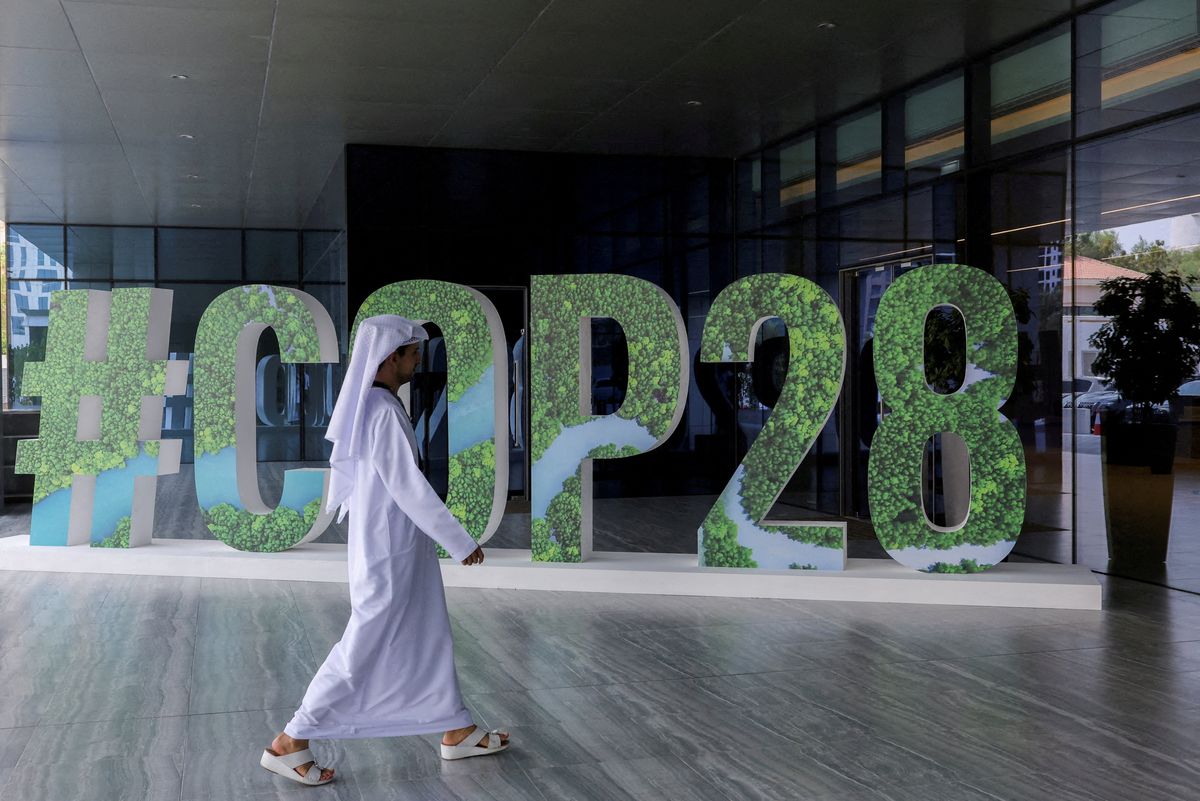Global climate talks are kicking off at COP28 on Thursday amid revelations that its host, the United Arab Emirates, is using the event to lobby for fossil fuel production. On the one hand, no one is surprised. Climate activists were already outraged and suspicious that one of the world’s largest oil and gas producers was hosting a meeting meant to move the world away from their production. On the other, as scientists uncover that climate change is progressing faster than expected, are the few global institutions meant to be speeding up our transition to carbon neutrality actually working against it?
For answers, we looked to Eurasia Group Vice Chairman Gerald Butts, who was a part of Canada’s delegation when the Paris Agreement was adopted at COP21 in 2015.
What was the Paris Agreement, and what has been your experience of COP meetings in the past?
Gerald Butts: The Paris Agreement was really about countries agreeing to take their own path to a common outcome. Every COP since then has been an attempt to fill in the blanks of how different countries are going to get to [carbon neutral] and serves as a reporting and accountability mechanism of how much progress each country has made.
I think that from a big-picture dynamic, the really hard issues still haven't been settled. Like, what is the role of oil and gas in a net zero world and in a decarbonized energy system? Like, who is going to pay for all of the negative consequences? Or, who is going to pay for poorer countries to be able to absorb the most negative consequences of climate change?
Those three big issues that haven't been sorted. And they're kind of coming to a head for obvious reasons because a country whose economy is dominated by oil and gas is hosting COP for the first time.
Speaking of which, what do you think of the recent revelations that the UAE is using the event to prompt fossil fuel negotiations?
I think actually the story is kind of a Rorschach test. The people who had always been suspicious of the UAE's motives for wanting to host COP will point to it and say, “Aha, that's what we were suspicious of!” And on the other hand, the UAE will say, “Well, we're an oil and gas producer, of course, we're going to try and sign oil and gas contracts.”
And that just kind of makes the point of the ... dare I say it, GULF between one side and the other. The UAE doesn't see anything wrong with what it's doing. While advocates for more rapid decarbonization see everything wrong with what the UAE is doing.
And we're kind of coming to a head here. The International Energy Agency released a really important report last week on the role that oil and gas can play in the transition. And it rightly rendered a judgment that oil and gas has been an impediment to decarbonization rather than a facilitator of it. And we're long past the day where you can say one thing and do another.
And whether from that report or in your own opinion, do you see a role for oil and gas in the decarbonization transition?
I see a theoretical one for sure. I mean, I think that an enormous amount of capital from the existing energy system has been absorbed by existing providers of energy and that if they were to deploy that capital to expedite decarbonization, that would be positive. In a nutshell, that's what the IEA's 150-page report says, if I can summarize it. But when you look at the balance sheets of these companies, what they're actually deploying capital to do, it's not that, it's to develop oil and gas.
Keeping on this subject, do you think revelations like these [about the UAE] hurt the momentum of the climate change movement? You said we're at a breaking point at this controversial COP28. What do you think the effects are going to be?
I always think it's a good thing when hard questions get clearly put on the table. And that's what's happening here. I think it'll feel like a setback in the short term, but it's actually a good thing that we're talking about real things at COP.
I think the next big COP will be, not next year, but the year after that, when Brazil will be hosting. Constructing a positive path between this COP and the Brazil COP30 will be a really important thing for the future of COP.
Some say that progressive candidates haven't proven they can win by pushing an aggressive climate change agenda. Do you think this is a problem? How could climate change become a more winning campaign platform for progressive candidates?
Butts: Well, I wouldn't agree with that assessment, actually. I think there are lots of examples of successful candidates who ran on aggressive climate agendas — Joe Biden, Justin Trudeau, Emmanuel Macron.
I think the challenge is this inflationary environment is really bad for incumbents. It's coincidental that a lot of those incumbents tend to be pro-climate forward, so to speak. But inflation doesn't discriminate against governments of any ideological stripe. It's just really bad if you're in power when it happens.
You’ve said that you remain optimistic about climate because the youth around the globe will vote or push their leaders to act in their best interests. I wonder if we will be given enough time to do that when you read about climate change progressing faster than anyone thought.
I think that's still true, actually. I think the people that are being hurt most by the inflation environment are homeowners, right? There are people who have mortgages. Sadly for your generation, you haven't been able to break into that market en masse yet. Which may turn out to be in the short term, a good thing, right, that you're not going to be trying to scramble to find 30 to 40% more of your monthly budget to pay your mortgage.
But I think in the short term, it's going to be hard because people are going to be focused on, short term, keeping their heads above water. Not long-term about keeping everybody's heads above water.
What do you think of President Joe Biden skipping this year's COP to focus on the Middle East and the upcoming election?
I think it's a bit of a sign that he thinks that this COP is not something he wants his brand associated with. I think that says a lot about the dynamic that we talked about 10 minutes ago. The United States this year will break a record for oil and gas production, but at the same time, they've got the most aggressive climate legislation in the history of the United States and one of the most aggressive anywhere in the world.
So they're trying to ride two horses. It's a domestic example of the global problem that the time for riding two horses is coming to an end.
I think if this COP was in Brazil, he'd be there.



















